In another milestone move to expand its reach, UCLA announced Thursday that it has purchased a landmark building in downtown Los Angeles for satellite classes, aiming to widen access at the nation’s most popular university and help revitalize the city’s historic core.
UCLA purchased the 11-story, Art Deco-style Trust Building on Spring Street, and expects to begin classes in it later this year — initially through its large Extension program. But Chancellor Gene Block said in an interview that the university has “not precluded” eventually developing the site, renamed UCLA Downtown, to accommodate more undergraduate and graduate students with possible housing nearby.
The purchase comes nine months after UCLA bought two large properties owned by Marymount California University, a small Catholic institution in Rancho Palos Verdes that closed its doors last year. The $80-million purchase of Marymount’s 24.5-acre campus and an 11-acre residential site in nearby San Pedro marked the university’s most significant expansion to help meet the burgeoning demand for seats.
UCLA, the most-applied-to university in the nation, drew nearly 150,000 first-year applications for about 6,500 spots in fall 2022 and nearly that many for fall 2023 — sparking angst among growing legions of rejected Californians and pressure from state legislators to reduce the number of out-of-state students.
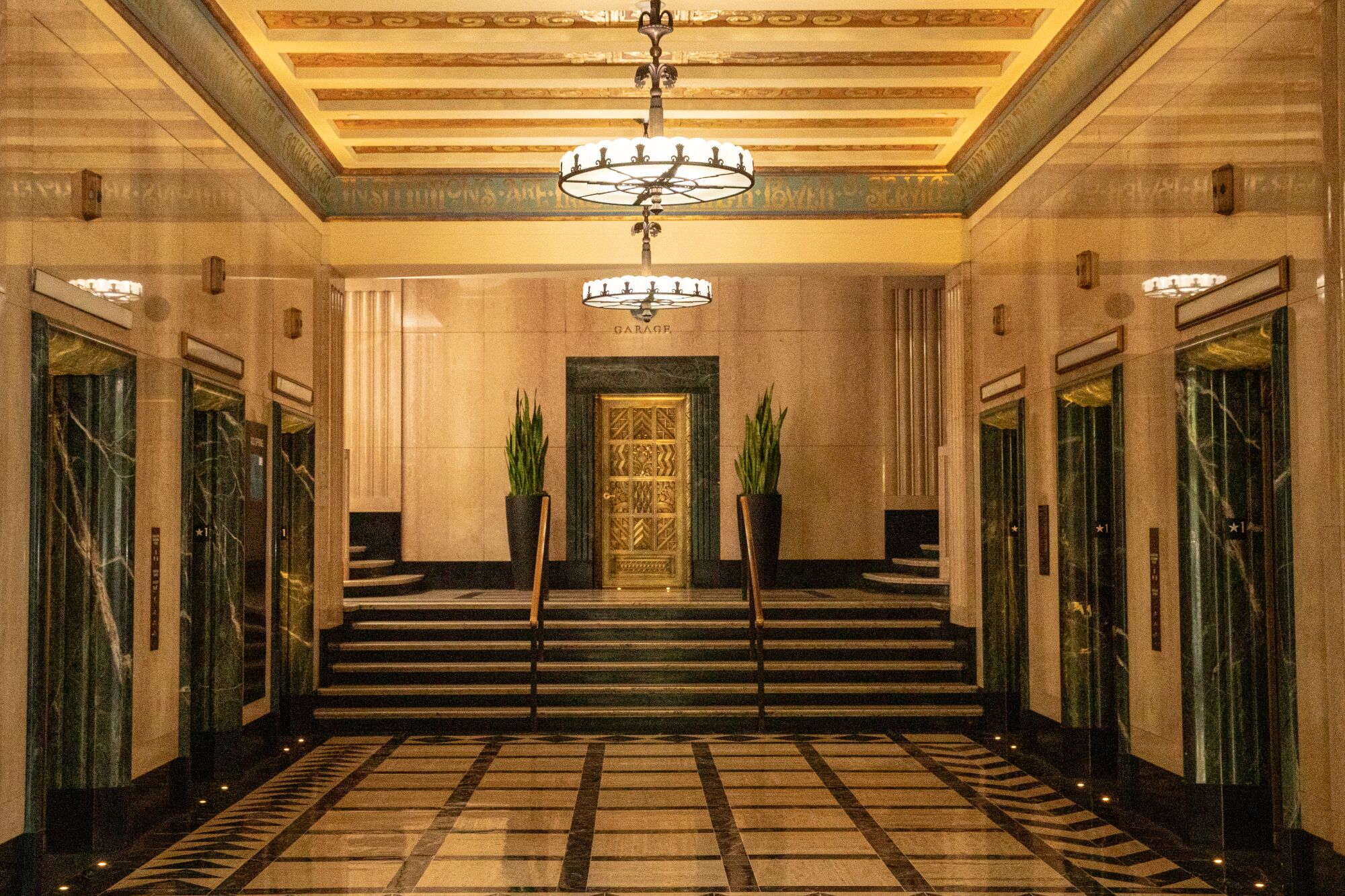
UCLA purchased the landmark Trust Building on Spring Street and plans to begin Extension classes in it later this year.
(Irfan Khan / Los Angeles Times)
But the university’s 419-acre Westwood footprint is the smallest among UC’s nine undergraduate campuses, leaving it no room to grow and prompting efforts to look for ways to meet its goal to add about 3,000 more undergraduates and 350 more graduate students by 2030.
Block said the 334,000-square-foot Trust Building, which will be renovated with classrooms, office space and more, can help accommodate additional students, anchor research projects, potentially host startup companies and serve the neighborhood.
“We believe deeply in Los Angeles and its future,” Block said. “We couldn’t be prouder to expand UCLA’s presence in the beating heart of downtown, which has been a vision of ours for a full decade. The sky’s the limit on what we can do.”
Block declined to disclose the sales price, but UCLA appears to have scored a significant deal. Real estate experts with knowledge of the transaction, who were not authorized to speak publicly, placed it at less than $40 million, a sharp discount from the building’s assessed value of nearly $88 million.
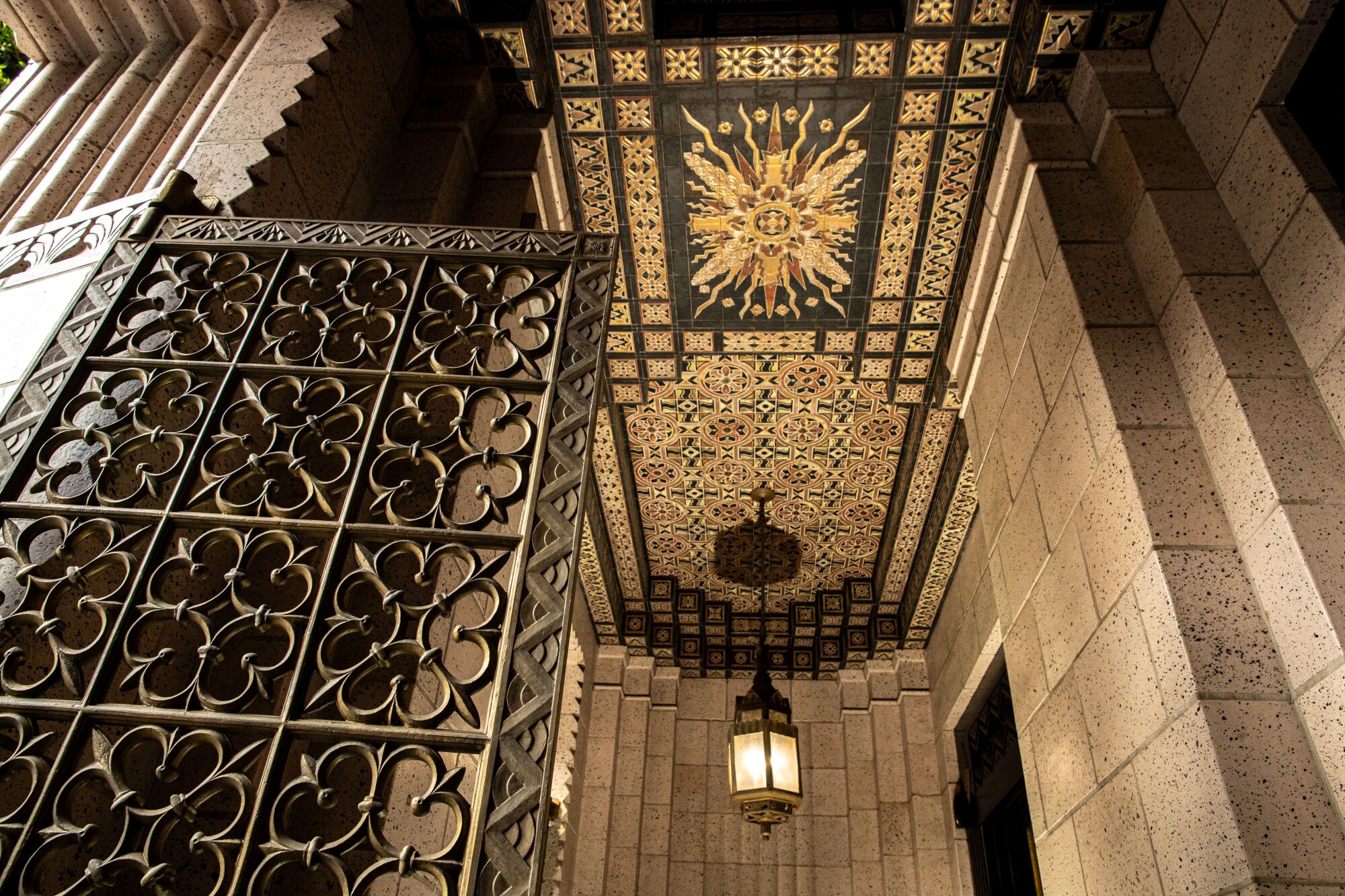
The historic Trust Building on Spring Street features an ornate ceiling.
(Irfan Khan / Los Angeles Times)
The sellers, Rising Realty Partners and its financial partner Lionstone Investments, bought the building in 2016 for $80.4 million, according to real estate data provider CoStar. Rising Realty, which is headquartered in the building, performed an estimated $40-million makeover that brought it up to modern earthquake safety standards and restored original features such as gilded ceiling decorations that were painted over in late 20th century renovations.
“Downtown L.A.’s challenging commercial real estate market gave UCLA a great value for their investment,” said Hal Bastian, a real estate broker and longtime downtown advocate who lives near the Trust Building. “After lots of bad press for downtown L.A., this is proof that people still have confidence in our long-term success.”
Mayor Karen Bass hailed UCLA’s move. “It’s exciting to see institutions like UCLA expanding their presence in Downtown Los Angeles and committing to its future as a vibrant urban hub that draws people from all over our City and around the world,” she said in a statement.
Once known as the “Queen of Spring Street,” the building was designed by legendary architects John and Donald Parkinson — who also created City Hall, Union Station and the Los Angeles Memorial Coliseum — and is now designated a city Historic-Cultural Monument.
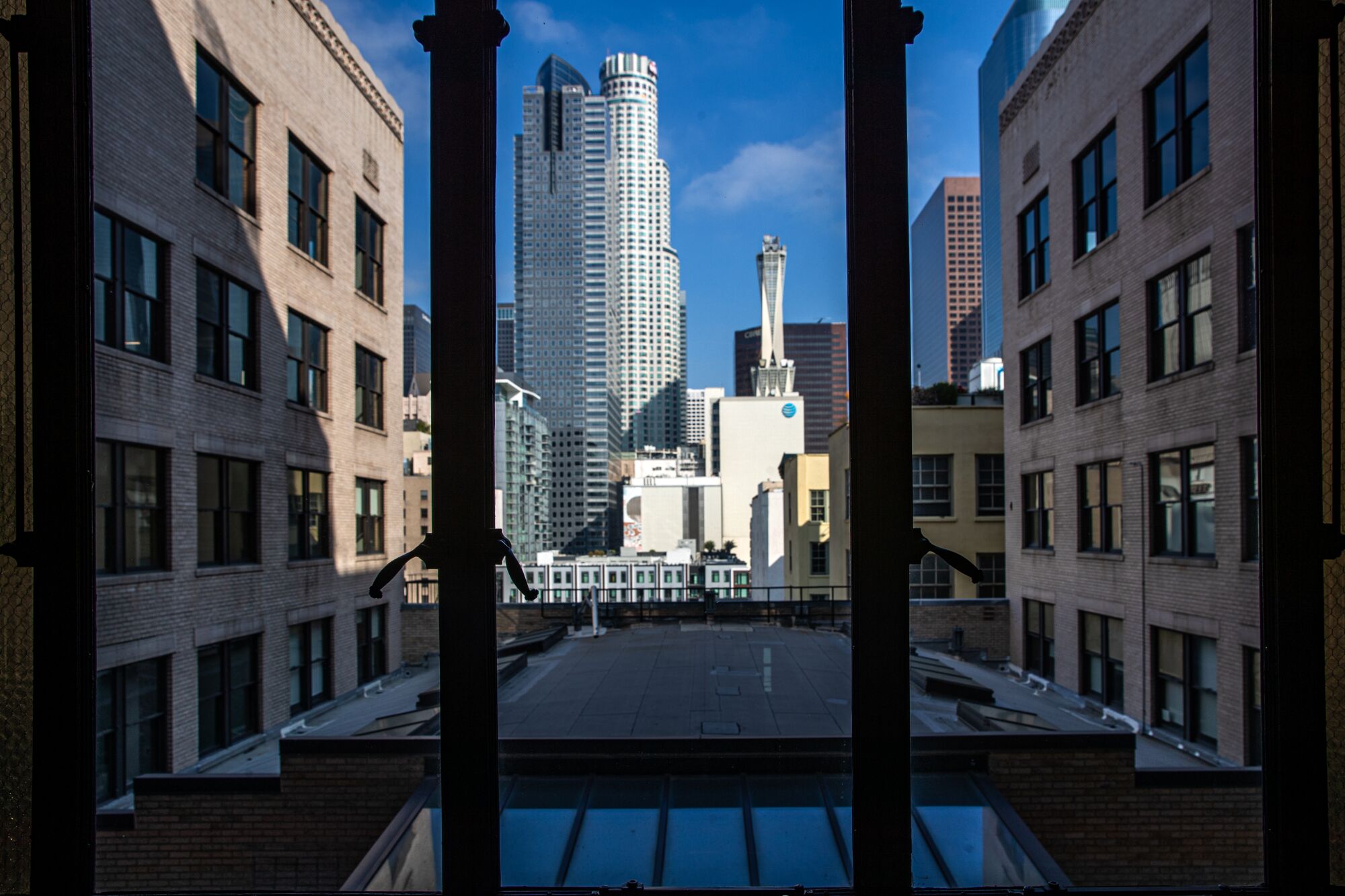
City boosters hope UCLA’s purchase of the 11-story, 334,000-square-foot Trust Building will spark downtown renewal.
(Irfan Khan / Los Angeles Times)
It was built in 1928 at the behest of Title Insurance and Trust Co., one of the city’s biggest financial institutions in an era when Spring Street was hailed as the “Wall Street of the West.” The firm used the building as its headquarters until 1977, when the city’s top white-collar firms were moving to newer office towers in downtown’s financial district and elsewhere as the historic core, the city’s original downtown, was going to seed.
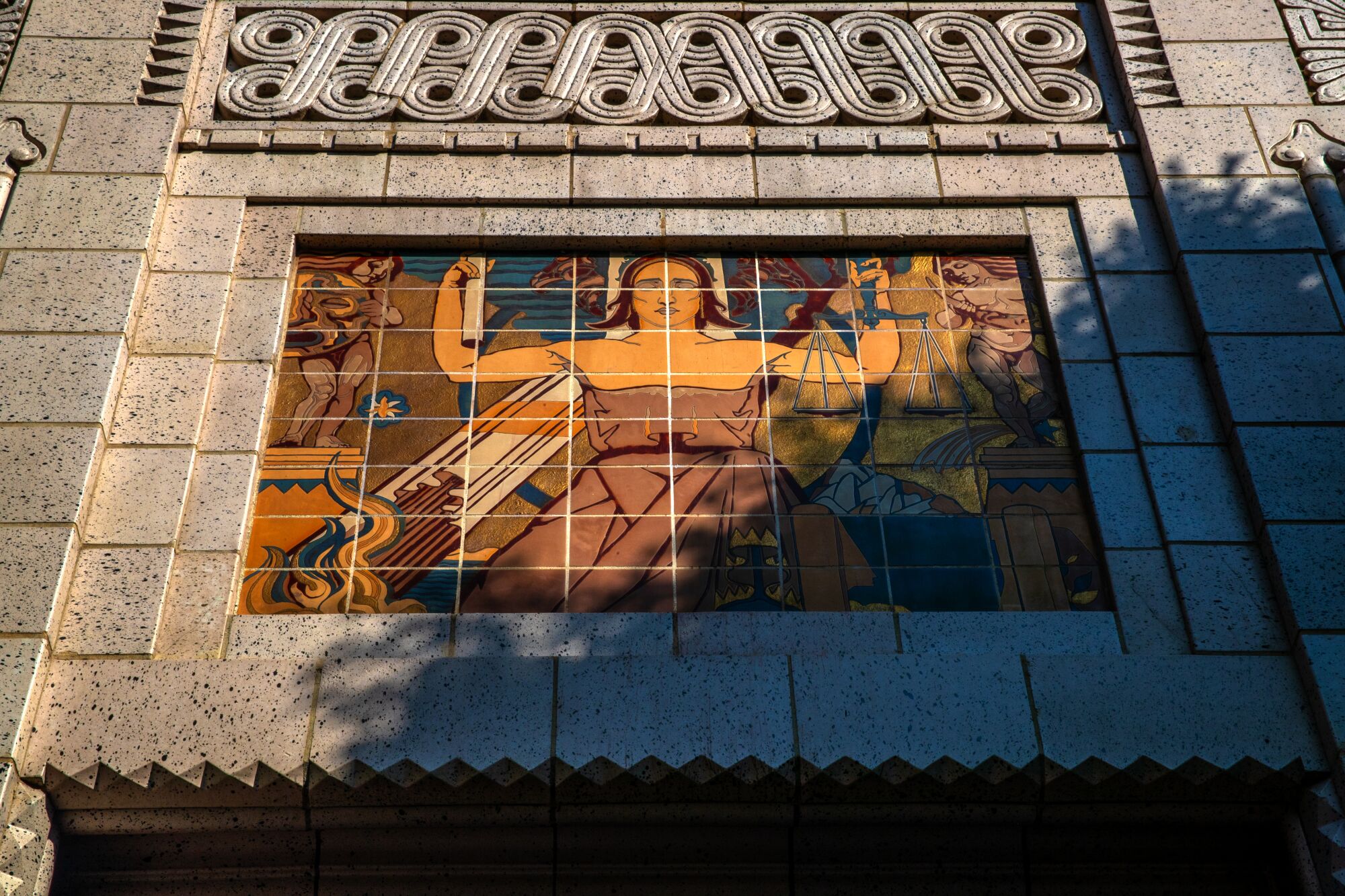
The outside facade of the historic Trust Building on Spring Street features this mural.
(Irfan Khan / Los Angeles Times)
In recent years the imposing structure, designed to signal prestige and power with its finishes of marble, brass and black walnut, has been used primarily as a filming location for period pieces and fantasies such as “Batman.”
The Trust is nearly devoid of tenants amid a contracting downtown office leasing market. As in other parts of downtown L.A., the nearby streets have a significant homeless population that increased during the pandemic. In the evening hours, however, there are often crowds of people patronizing bars and restaurants as well as residents walking their dogs.
Real estate experts expressed hope that UCLA’s purchase will accelerate downtown renewal.
“After several years of nothing but negative news surrounding downtown Los Angeles, the UCLA acquisition of the Trust appears to be one of the first green shoots towards recovery,” said real estate broker Mike Condon Jr. of Cushman & Wakefield, who represented the seller in the transaction. ”Such a large and prominent institution like UCLA making a big bet in the market is a much-needed boost to the historic core.”
José Andrés, a celebrated chef known for both his culinary and his humanitarian work, has agreed to open a rooftop restaurant at the Trust Building. Last year Andrés and his hospitality group opened two restaurants, two cocktail bars and a poolside lounge in downtown’s Conrad hotel, with steakhouse Bazaar Meat projected to open in the second half of 2023 within the $1-billion Grand complex on Bunker Hill.
Andrés’ restaurant group will continue as tenants in the building, along with Rising Realty and KTGY Architecture + Planning.
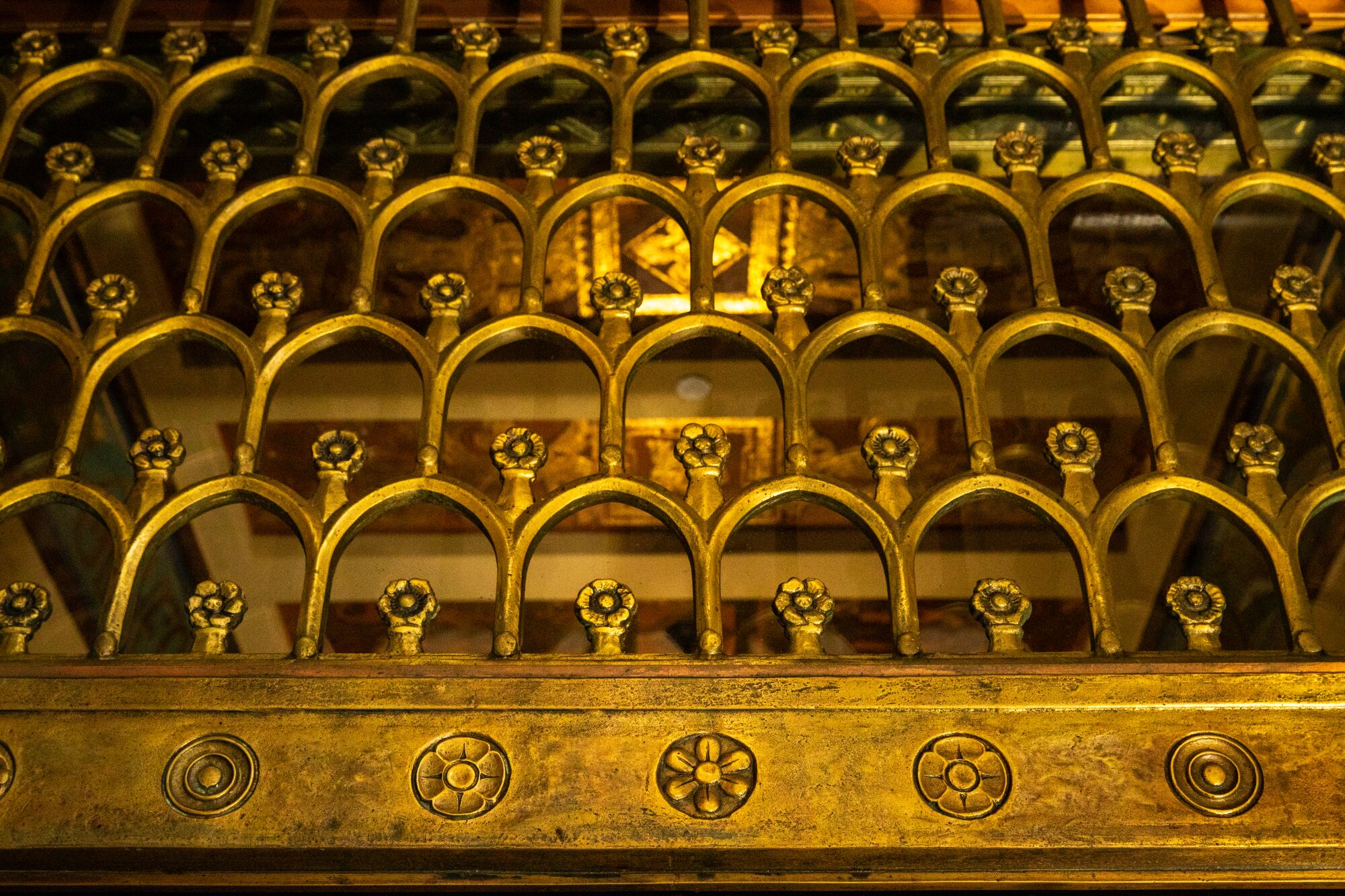
The Trust is nearly devoid of tenants amid a contracting downtown office leasing market.
(Irfan Khan / Los Angeles Times)
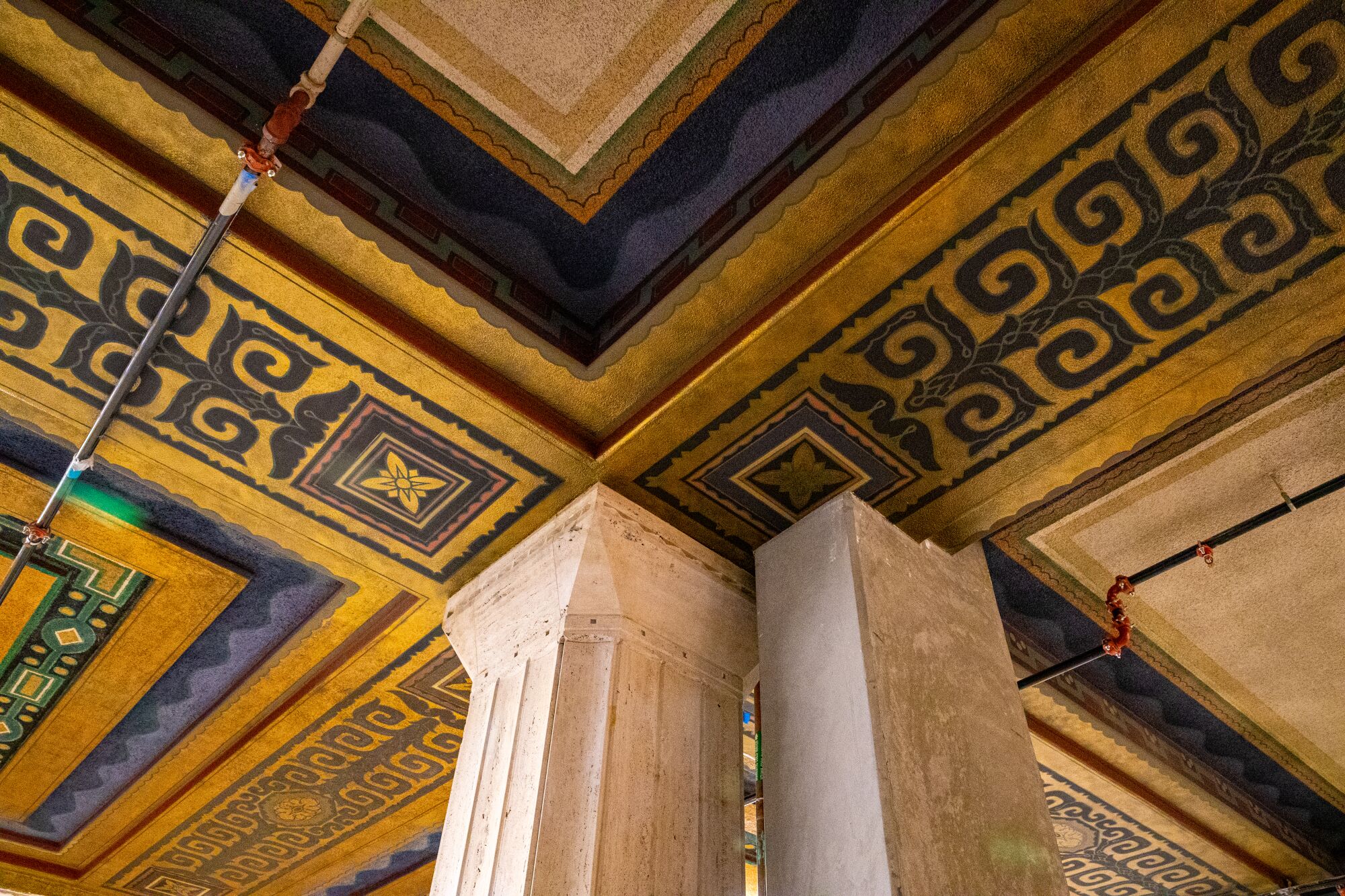
The nearly century-old Trust Building features an Art Deco tower.
(Irfan Khan / Los Angeles Times)
Block said UCLA has wanted to expand in downtown L.A., where it already operates health clinics, some Extension courses and a labor center in nearby MacArthur Park, for the last decade. The Trust acquisition will pay off even more in 2027, when the Purple Line is set for completion and will connect nearby Pershing Square to the Westwood main campus.
The chancellor said he first saw the building this year and was “dazzled” by its grand architecture and elegant space.
Arizona State University also saw ripe educational opportunities in the area, opening a downtown Los Angeles center in 2021 in the renovated Herald Examiner building on 11th and Broadway. The expanded presence of both universities, along with USC, is higher education’s “very important statement on the confidence in the future of cities,” Block said, adding that he hoped “hundreds” of people would eventually occupy UCLA Downtown.
Other UC campuses also are expanding operations in their city cores. UC Davis is building Aggie Square, an “innovation hub” on its Sacramento campus that will include science and technology buildings and student housing. The campus estimates a few hundred undergraduates can spend a quarter there.
Last year, UC San Diego opened a four-story, 66,750-square-foot structure downtown just steps from the Blue Line Trolley at the corner of Park Boulevard and Market Street. The building is designed as a cultural, educational and business hub to showcase creative ventures, boost economic activity and deepen ties across the border, university officials say.
“We’re all coming to the same conclusion that we have cities that need to be protected and helped to thrive,” Block said. “So I think we’re all seeing the need to be downtown.”
Stay connected with us on social media platform for instant update click here to join our Twitter, & Facebook
We are now on Telegram. Click here to join our channel (@TechiUpdate) and stay updated with the latest Technology headlines.
For all the latest Education News Click Here
